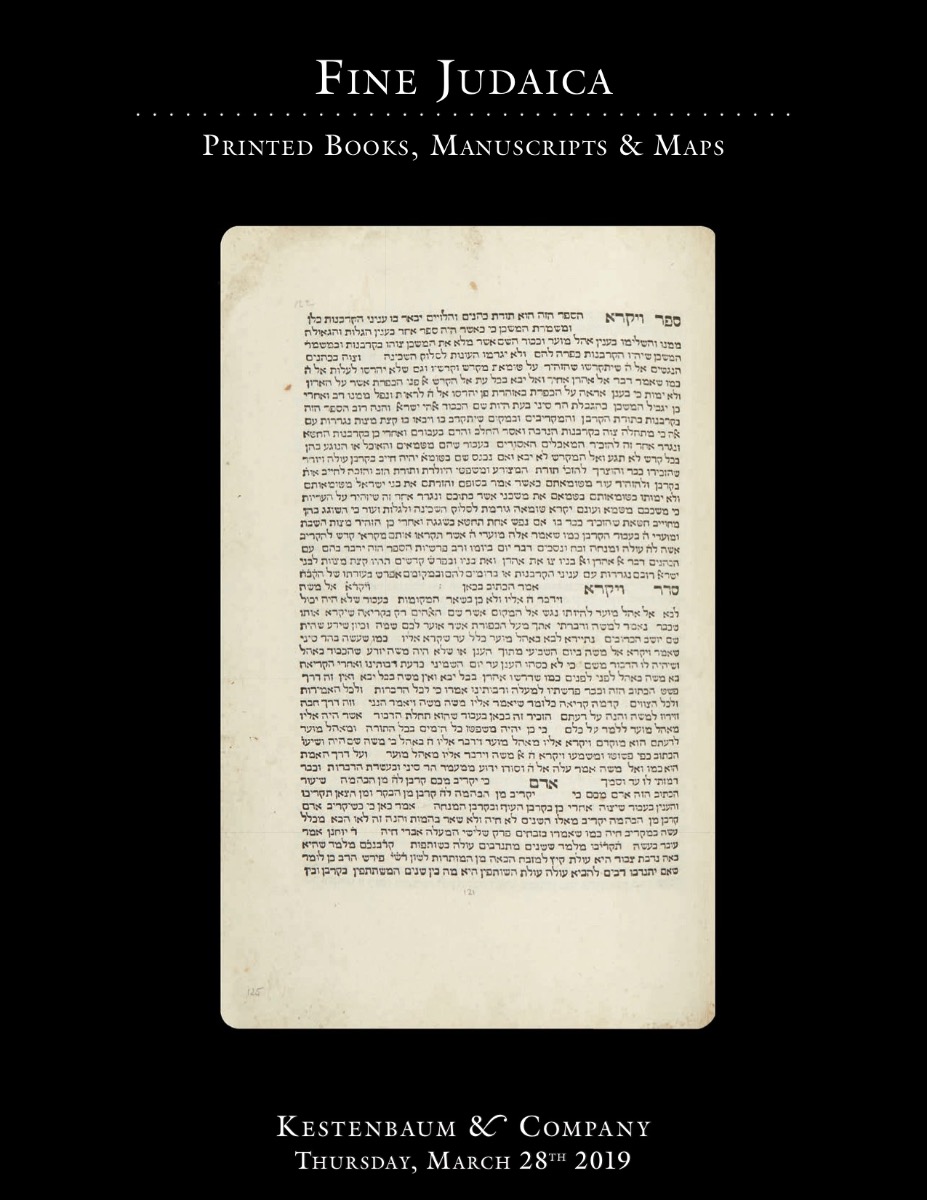Group of Nineteen Autograph Letters Signed, all written to <<Isaac Leeser>> on assorted community and related matters. Texts in English, German and Hebrew.

AUCTION 80 |
Thursday, March 28th,
2019 at 1:00 PM
The Valmadonna Trust Library: Further Selections from the Historic Collection. * Hebrew Printing in America. * Graphic & Ceremonial Art
Lot 130
(AMERICAN JUDAICA)
Group of Nineteen Autograph Letters Signed, all written to <<Isaac Leeser>> on assorted community and related matters. Texts in English, German and Hebrew.
v.p: 1849-66
Est: $5,000 - $7,000
PRICE REALIZED $8,000
A miscellany of letters to Leeser. The examples below are a testament to the range of subject-matter included among the whole:
<<*>> A letter from Isidor Busch (1822-98), who gained renown as the editor of the Kalender und Jahrbuch für Israeliten in Vienna, and afterwards emigrated to the United States. Almost immediately he published Israel’s Herald, which was short-lived, the first Jewish weekly in America. Here, Busch asks Leeser if he would be willing to join Busch’s Hebrew Catalogue to The Occident; he also asks how he might acquire German type. Leeser was just about the best Jewish connection one could make in America in 1849, and in this letter Busch sweetly tells Leeser he hopes that they may become friends.
<<*>> A request from the headmaster of the Hebrew Free School in New York for copies of Leeser's Catechism, as well as 150 copies of the Ten Commandments and Creeds on cards - educational material produced by Leeser and often advertised in the Occident.
<<*>> The cover-letter from Mendes Kursheedt (1814-86) for the $3,000 that Judah Touro willed to Leeser to disperse charitably as he saw fit. The childless Touro’s bequest was the largest left to Jewish causes until that point, and had been accomplished through persuasion by the Kursheedt brothers, with guidance from Leeser.
<<*>> A positive reaction from Lewis Samuel of Liverpool to a prospectus of Leeser’s Bible translation. Samuel orders copies for himself and friends, and offers suggestions how Leeser might publish it. A synagogue Gabbai (sexton), Samuel also expresses here his particular views of congregants: “I can't stand to hear a worthless irreligious Bad Man called to the Sefer and crave from the Almighty a blessing for me for which he then offers 12 cents! (or 6 pence).”
